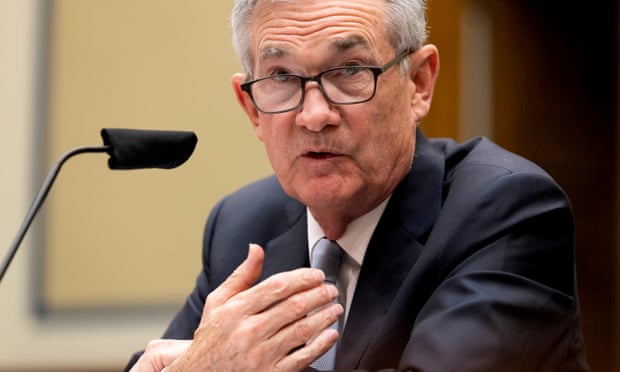Federal Reserve hints it will end pandemic stimulus programmes
The Federal Reserve (of the United States) signalled on Wednesday that it may start cutting its enormous pandemic stimulus programmes as soon as November and could raise interest rates next year.
The US central bank left interest rates unchanged at near zero after its latest meeting. Rates were cut in March 2020 as the US economy reeled from the impact of the pandemic. But the Fed also indicated it may soon start pulling back on the $120bn in monthly asset purchases program that it started when the coronavirus hit the US.
“If progress continues broadly as expected, the Committee judges that a moderation in the pace of asset purchases may soon be warranted,” the Fed’s post-meeting statement said.
At a press conference, Fed Chair, Jerome Powell, said the jobs market was “very strong” and that while the central bank was trimming its forecasts for economic growth, it still foresees “rapid growth” in the economy.
Powell said the pandemic was still having an impact and that bottlenecks and shortages were driving price inflation, but he expected that situation to ease as long as the coronavirus pandemic is contained. “The path of the economy still continues to depend on the course of the virus,” he said.
The latest Fed statement also showed that more members of the Fed committee now believe that interest rates should rise in the near future.
Nine of the 18 officials expect to raise interest rates by the end of 2022, up from seven officials in June, when a majority said they thought rates would rise in 2023.
US stock markets reacted favourably to the news, which suggests the economy is still recovering from the pandemic, albeit with uncertainties remaining.
Investors have been spooked in recent days by news that troubled Chinese property developer Evergrande could default on its $300bn debts. The company’s woes could drag in investors worldwide, but on Tuesday the company said it would be able to meet some of its obligations.
Powell said the situation “seems particular to China which has very high debt for an emerging market economy.
“In terms of the implications for us, there is not a lot of direct United States exposure,” he said.
READ ALSO: Oil Prices Fall As Traders Anxiously Await Fed’s Decision



